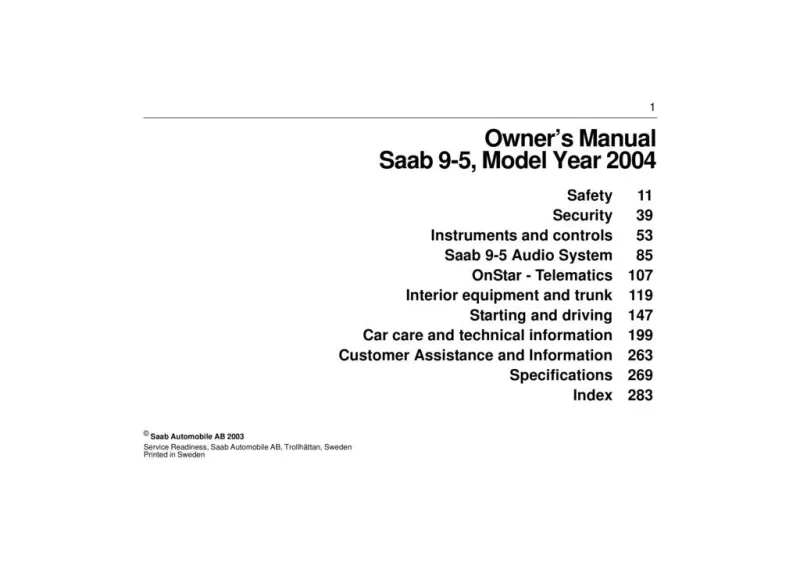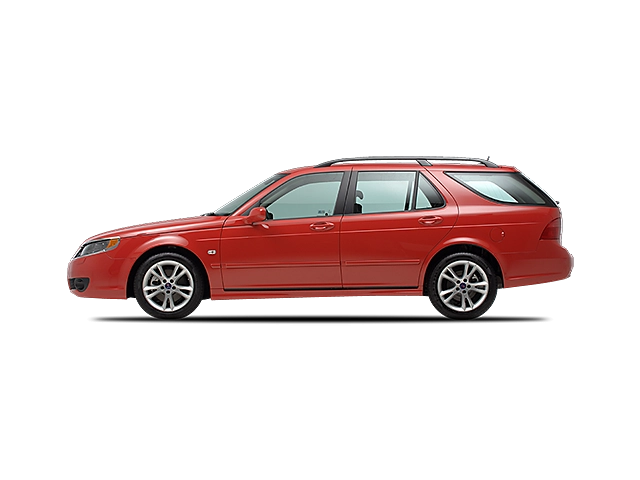2004 Saab 9 5 Owner's Manual

Table of Contents
2004 Saab 9 5 Overview
Introduction
The 2004 Saab 9-5 embodies a perfect blend of Scandinavian design, advanced engineering, and a commitment to safety. As a midsize luxury sedan, it caters to both performance enthusiasts and those seeking comfort in their daily drive. With its distinctive styling and practical features, the 9-5 stands out in a competitive market, offering a unique alternative to traditional sedans.
Powertrains
The 2004 Saab 9-5 is available with two powerful engine options that deliver an exhilarating driving experience. The base model is equipped with a 2.3-liter turbocharged inline-four engine, generating an impressive 185 horsepower. For those desiring a sportier ride, the 9-5 Aero model features a potent 2.3-liter turbocharged inline-four that produces 250 horsepower, ensuring swift acceleration and superior handling. Both engines come paired with either a five-speed manual or five-speed automatic transmission, catering to individual driving preferences.
Trims
The 2004 Saab 9-5 is offered in several trims, including the Linear, Arc, and Aero. The Linear trim provides a solid array of features, while the Arc enhances luxury with leather upholstery, heated front seats, and upgraded audio systems. The Aero trim takes performance to the next level with sport-tuned suspension, larger wheels, and aggressive styling cues. Each trim level is designed to cater to diverse tastes and preferences, ensuring a tailored driving experience.
Features
Standard features across the Saab 9-5 include dual-zone automatic climate control, a robust sound system, and a comprehensive array of safety features such as anti-lock brakes and airbags. Higher trims boast additional amenities such as a navigation system, premium audio packages, and advanced keyless entry, making every drive feel luxurious and effortless. The thoughtful layout of controls and roomy cabin adds to the overall comfort, making it an ideal choice for both city commutes and long journeys.
Owner's Manual
The owner's manual for the 2004 Saab 9-5 serves as a valuable resource for understanding the vehicle's features, maintenance schedules, and troubleshooting tips. It provides essential information on how to maximize the performance and longevity of your vehicle while also addressing safety guidelines. Whether you're experiencing a minor issue or exploring advanced features, the manual acts as a trusted companion to enhance your 9-5 ownership experience.
User manual download
The Saab 9 5 owner manual for the 2004 model year is to be found in PDF downloadable format on this page. The owner manual for the model year 2004 is free and in English, but the repair manuals are usually not easy to get and may cost more.
Manual Questions
Fill the form below and someone will help you!

